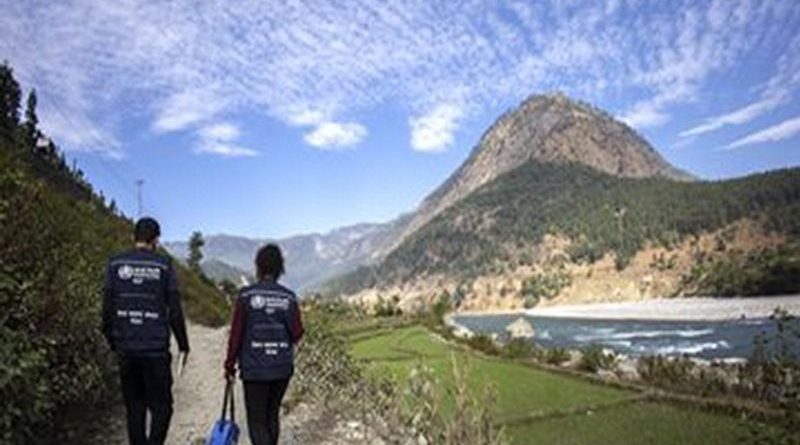WHO Commends Nepal for Its Contribution to the South-East Asia Regional Health Emergency Fund
The World Health Organization (WHO) South-East Asia Region today thanked the Ministry of Health and Population, Government of Nepal, for contributing Nepalese Rupees 1,500,000 (approximately USD 11,000) to the South-East Asia Regional Health Emergency Fund (SEARHEF), a unique funding mechanism that supports member countries in the region in preparing for and responding to health emergencies.
“WHO thanks Nepal for its contribution to SEARHEF. Nepal has championed the regional health emergency fund at various forums. The country has demonstrated great leadership in building capabilities and responding to emergencies, offering many lessons for the region and the world to emulate,” said Saima Wazed, Regional Director, WHO South-East Asia, in a letter to Pradip Paudel, Minister of Health and Population, Nepal. Nepal’s contribution is a testament to its support, ownership, and commitment to SEARHEF, which is transparently managed by WHO for the benefit of member countries in the region.
Established in 2007, SEARHEF was created as part of the lessons learned from the Indian Ocean tsunami, which affected multiple countries in the region. It was set up to provide immediate financial support for health sector responses during emergencies, which is critical to saving lives. To date, SEARHEF has supported 49 emergencies across 10 countries, disbursing over USD 8 million.

In 2016, the scope of SEARHEF was expanded to include emergency preparedness, enabling three countries to use this funding mechanism to strengthen their Health Emergency Operations Centres and Rapid Response Teams.
As a country prone to natural disasters, Nepal has utilised SEARHEF to respond to the Koshi floods in 2008, the massive earthquake in 2015, and the recent earthquake in Jajarkot in 2023. The funds were used to coordinate health responses, provide life-saving services, minimise disabilities through the deployment of medical teams, prevent and respond to impending outbreaks, and ensure the continuity of essential health services through the establishment of temporary healthcare facilities.
Recognising the critical role played by SEARHEF in public health response across the region, member countries at the annual governing body meeting of WHO South-East Asia in October 2024 agreed to increase the fund’s corpus from USD 1 million to USD 3 million. Nepal is the fourth country, after Thailand, India, and Timor-Leste, to contribute to the enhanced corpus of SEARHEF.
The Regional Director reaffirmed WHO’s commitment to supporting member countries in building resilient health systems that are well-prepared to respond to public health emergencies of any magnitude.

